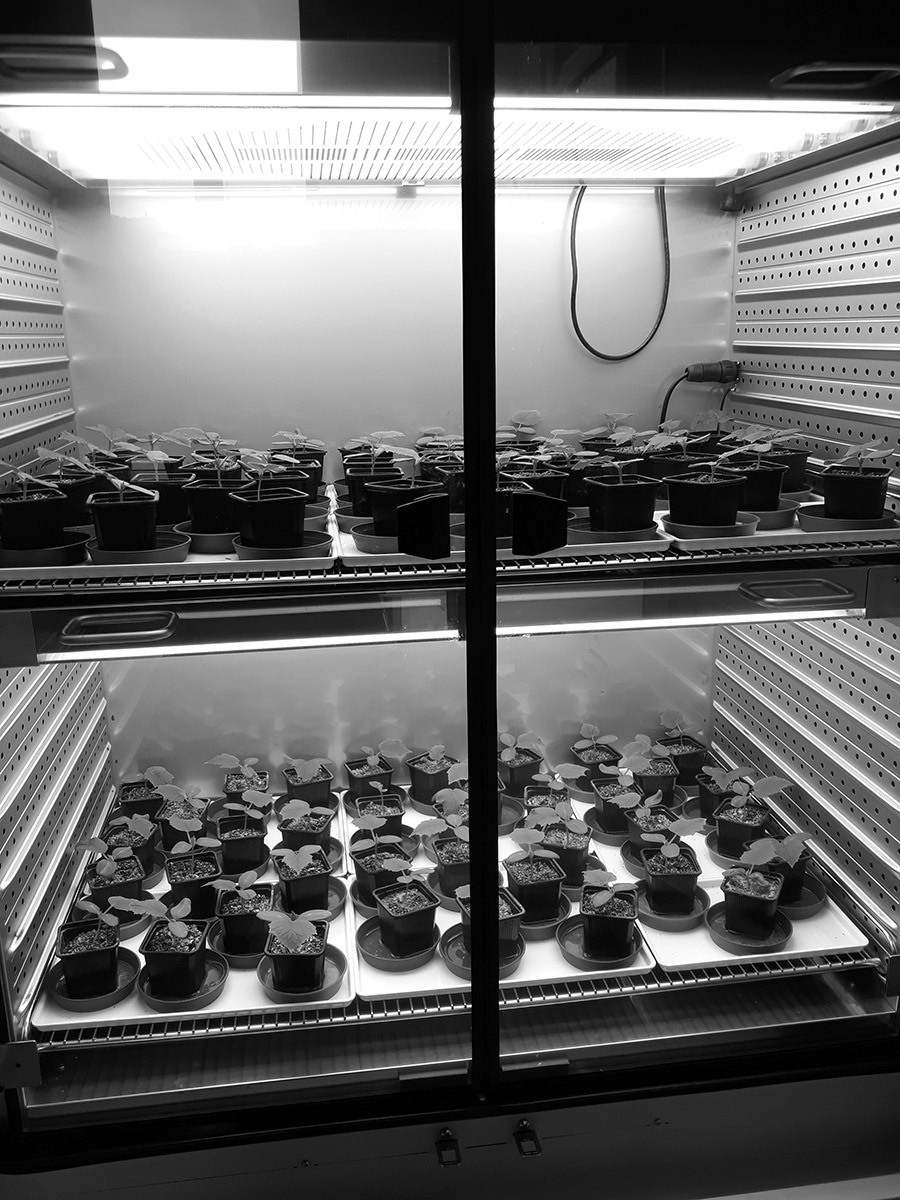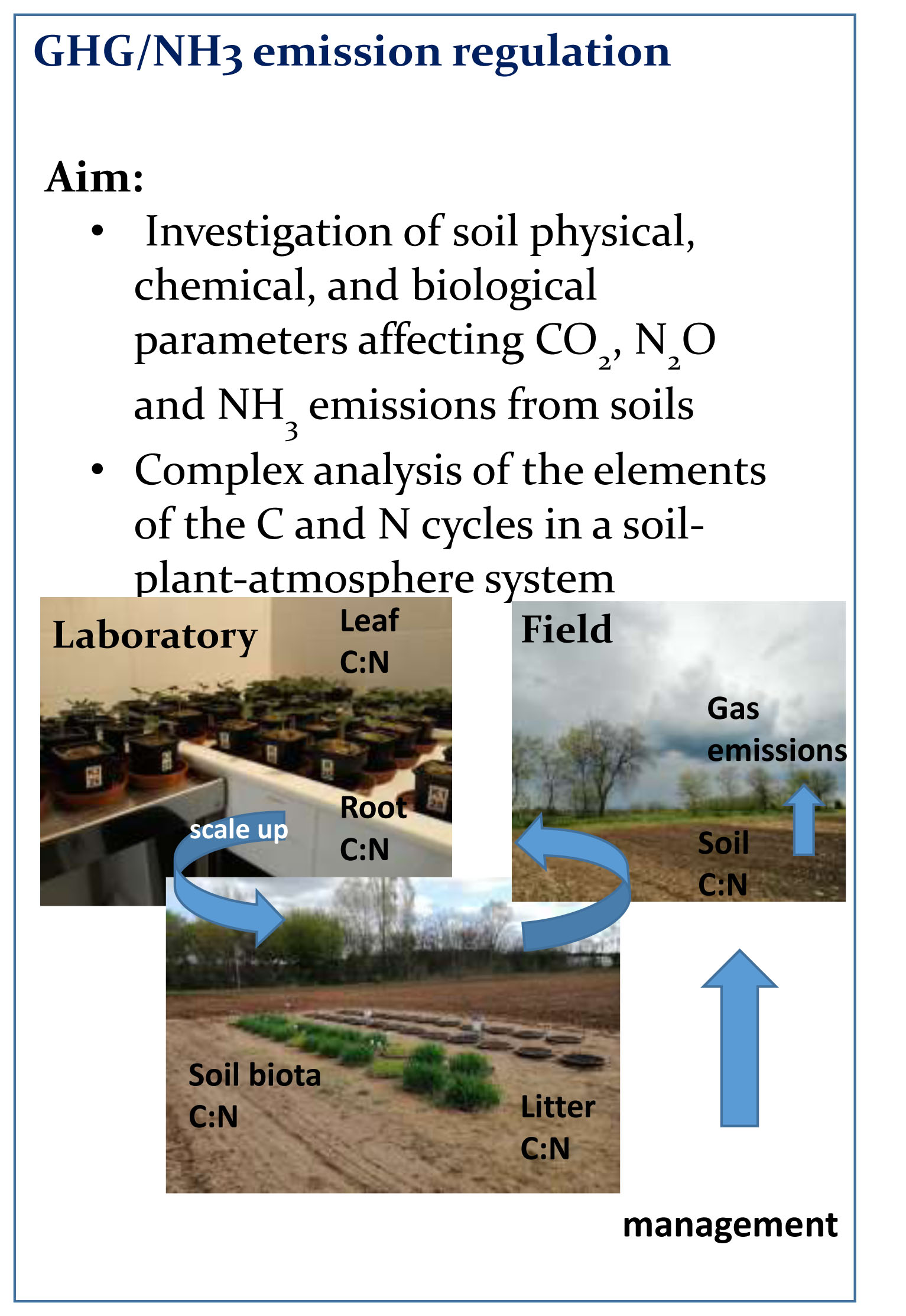Project leader:
Hubainé Tóth, Eszter
Participating researchers:
Imréné Takács, Tünde; Füzy, Anna; Dencső, Márton; Juhász, Péter; Pabar, Sándor; Kocsis, KaticaTo understand the sources and sinks of greenhouse gases (GHGs – as carbon dioxide, nitrous oxide) and ammonia (NH3), the changes and the possibilities in reduction in their concentration is one of the main goals of recent scientific researches. Greenhouse gases have long atmospheric lifetime therefore they can easily mix up in the atmosphere having global not only regional effect. In comparison, NH3 has a more regional impact. The increasing atmospheric concentration of GHGs and also the increasing NH3 emission from agricultural activities is a global issue due to climate change and environmental – and human health risks. The amount and type of the fertilizer and the tillage method applied during agricultural production can highly influence the rate of emissions. Good agricultural practices keep in consideration the emission reduction possibilities. Between 2005 and 2018 emissions from agricultural origins decreased less, which means the sectoral regulations do not help in emission reduction. Further potentials must be found and applied to reduce agricultural emissions. We must find and evaluate agrotechnical and agronomic possibilities to reduce emissions and increase carbon sequestration. We cannot achieve either the NH3 emission reduction targets without more efficient fertilizer usage and without measuring and study the effect of environmental and soil physical-chemical and biological impact on NH3 emission. The project aim is to study the effect of soil physical, chemical and biological parameters on the emission of the given gases in laboratory and field experiments. We study the elements of the C-N turnover under different soil nutrient supply and different soil status with C3 and C4 plant species. We evaluate the relationship between soil nutrient supply, plant growth, plant biology, functional diversity of rhizosphere microorganisms and soil emissions. We also plan to develop the methodology of gas emission measurements with calibration measurements and parallel usage of different analyzers. We build a database from the measured and calculated data. In the framework of the project, we cooperate with the Department of Optics and Quantum Electronics of the University of Szeged. The research is in line with the objectives of the Soil Protection Strategy and the National Air Pollution Reduction Program. The results will contribute to the development and decision support of technologies that optimize soil use, support soil health and sustainable practices.


